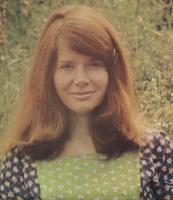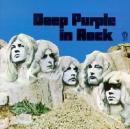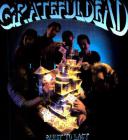Walk me out in the morning dew my honey,
Walk me out in the morning dew today.
I can't walk you out in the morning dew my honey,
I can't walk you out in the morning dew today.
I thought I heard a baby cry this morning,
I thought I heard a baby cry this today.
You didn't hear no baby cry this morning,
You didn't hear no baby cry today.
Where have all the people gone my honey,
Where have all the people gone today.
There's no need for you to be worrying about all those people,
You never see those people anyway.
I thought I heard a young man morn this morning,
I thought I heard a young man morn today.
I thought I heard a young man morn this morning,
I can't walk you out in the morning dew today.
Walk me out in the morning dew my honey,
Walk me out in the morning dew today.
I'll walk you out in the morning dew my honey,
I guess it doesn't really matter anyway,
I guess it doesn't matter anyway,
I guess it doesn't matter anyway,
Guess it doesn't matter anyway.
Walk me out in the morning dew today.
I can't walk you out in the morning dew my honey,
I can't walk you out in the morning dew today.
I thought I heard a baby cry this morning,
I thought I heard a baby cry this today.
You didn't hear no baby cry this morning,
You didn't hear no baby cry today.
Where have all the people gone my honey,
Where have all the people gone today.
There's no need for you to be worrying about all those people,
You never see those people anyway.
I thought I heard a young man morn this morning,
I thought I heard a young man morn today.
I thought I heard a young man morn this morning,
I can't walk you out in the morning dew today.
Walk me out in the morning dew my honey,
Walk me out in the morning dew today.
I'll walk you out in the morning dew my honey,
I guess it doesn't really matter anyway,
I guess it doesn't matter anyway,
I guess it doesn't matter anyway,
Guess it doesn't matter anyway.
Contributed by Lorenzo Masetti - 2009/5/10 - 12:29
Language: Italian
Versione italiana di Alessio Impronta
La traduzione italiana. Quella dei Corvi è una "interpretazione" che nulla c'entra con l'originale, che narra di un dialogo fra l'ultimo uomo e l'ultima donna rimasti sulla terra dopo l'esplosione nucleare.
La traduzione italiana. Quella dei Corvi è una "interpretazione" che nulla c'entra con l'originale, che narra di un dialogo fra l'ultimo uomo e l'ultima donna rimasti sulla terra dopo l'esplosione nucleare.
PORTAMI FUORI FRA LA RUGIADA DEL MATTINO
portami fuori fra la rugiada del mattino, amore
portami fuori fra la rugiada del mattino, oggi
Non posso portarti fuori fra la rugiada del mattino amore
non posso portarti fuori fra la rugiada del mattino oggi.
Pensavo di aver sentito un bambino piangere stamattina
pensavo di aver sentito un bambino piangere oggi
non hai sentito alcun bambino piangere stamattina
non hai sentito alcun bambino piangere oggi.
Dove sono andati tutti, amore mio
dove sono andati tutti, oggi
Non ti preoccupare per tutte queste persone
non le vedrai mai più comunque
Credevo di aver sentito un giovane uomo lamentarsi stamattina
Credevo di aver sentito un giovane uomo lamentarsi oggi
Credevo di aver sentito un giovane uomo lamentarsi stamattina
non ti posso portare fuori fra la rugiada del mattino oggi
Portami fuori fra la rugiada del mattino amore mio
portami fuori fra la rugiada del mattino oggi
ti porterò fuori fra la rugiada del mattino amore mio
Credo che non importi nulla davvero ormai...
portami fuori fra la rugiada del mattino, amore
portami fuori fra la rugiada del mattino, oggi
Non posso portarti fuori fra la rugiada del mattino amore
non posso portarti fuori fra la rugiada del mattino oggi.
Pensavo di aver sentito un bambino piangere stamattina
pensavo di aver sentito un bambino piangere oggi
non hai sentito alcun bambino piangere stamattina
non hai sentito alcun bambino piangere oggi.
Dove sono andati tutti, amore mio
dove sono andati tutti, oggi
Non ti preoccupare per tutte queste persone
non le vedrai mai più comunque
Credevo di aver sentito un giovane uomo lamentarsi stamattina
Credevo di aver sentito un giovane uomo lamentarsi oggi
Credevo di aver sentito un giovane uomo lamentarsi stamattina
non ti posso portare fuori fra la rugiada del mattino oggi
Portami fuori fra la rugiada del mattino amore mio
portami fuori fra la rugiada del mattino oggi
ti porterò fuori fra la rugiada del mattino amore mio
Credo che non importi nulla davvero ormai...
Contributed by Alessio Impronta - 2018/9/20 - 00:09
Language: Spanish
La traducción al castellano de Gustavo Sierra Fernandez
EL ROCÍO DE LA MAÑANA
Abandóname en el rocío de la mañana mi amor,
abandóname en el rocío de la mañana hoy.
Yo no puedo abandonarte en el rocío de la mañana mi amor,
no puedo abandonarte en el rocío de la mañana hoy.
Creí que oía un bebé llorar esta mañana,
creí que oía un bebé llorar hoy.
No oíste llorar a ningún bebé esta mañana,
no oíste llorar a ningún bebé hoy.
A dónde se ha ido toda la gente mi amor,
a dónde se ha ido toda la gente hoy.
No tienes porqué preocuparte por todas esas personas,
nunca ves a esas personas de todas formas.
Creí que oía gemir a un hombre joven esta mañana,
creí que oía gemir a un hombre joven hoy.
Creí que oía gemir a un hombre joven esta mañana.
No puedo abandonarte en el rocío de la mañana hoy.
Abandóname en el rocío de la mañana mi amor,
abandóname en el rocío de la mañana hoy.
Te abandonaré en el rocío de la mañana mi amor,
supongo que en realidad no importa de todas formas…
Abandóname en el rocío de la mañana mi amor,
abandóname en el rocío de la mañana hoy.
Yo no puedo abandonarte en el rocío de la mañana mi amor,
no puedo abandonarte en el rocío de la mañana hoy.
Creí que oía un bebé llorar esta mañana,
creí que oía un bebé llorar hoy.
No oíste llorar a ningún bebé esta mañana,
no oíste llorar a ningún bebé hoy.
A dónde se ha ido toda la gente mi amor,
a dónde se ha ido toda la gente hoy.
No tienes porqué preocuparte por todas esas personas,
nunca ves a esas personas de todas formas.
Creí que oía gemir a un hombre joven esta mañana,
creí que oía gemir a un hombre joven hoy.
Creí que oía gemir a un hombre joven esta mañana.
No puedo abandonarte en el rocío de la mañana hoy.
Abandóname en el rocío de la mañana mi amor,
abandóname en el rocío de la mañana hoy.
Te abandonaré en el rocío de la mañana mi amor,
supongo que en realidad no importa de todas formas…
Contributed by Gustavo Sierra - 2012/3/18 - 12:20
Bonnie Dobson fimmina era!
Ma il primo ad eseguire "Morning Dew" dal vivo fu Fred Neil ed i primi ad inciderla furono Tim Rose ed il gruppo degli Episode Six (quello di Ian Gillan e Roger Glover, i futuri Deep Purple) nel 1967...
Molti altri proposero poi cover del brano, compresi i Grateful Dead...
(Alessandro)
Ma il primo ad eseguire "Morning Dew" dal vivo fu Fred Neil ed i primi ad inciderla furono Tim Rose ed il gruppo degli Episode Six (quello di Ian Gillan e Roger Glover, i futuri Deep Purple) nel 1967...
Molti altri proposero poi cover del brano, compresi i Grateful Dead...
(Alessandro)
Ops... ho corretto cantautore -> cantautrice
Bonnie Dobson dichiarò che la sua "Morning Dew" le fu ispirata dalla visione da "On The Beach", un film del 1959 diretto da Stanley Kramer (con Gregory Peck, Anthony Perkins, Fred Astaire e Ava Gardner) e basato sull'omonimo romanzo distopico e fanta-apocalittico dello scrittore australiano Nevil Shute
Bartleby - 2012/3/16 - 18:42
Language: Italian
La versione italiana interpretata del gruppo beat italiano I Corvi, quelli di “Un ragazzo di strada”
La cover di “Morning Dew” fu scritta nel 1968 da Angelo Ravasini
Testo trovato sul blog musicale Verso la Stratosfera, leggermente corretto all'ascolto
La cover di “Morning Dew” fu scritta nel 1968 da Angelo Ravasini
Testo trovato sul blog musicale Verso la Stratosfera, leggermente corretto all'ascolto
QUESTO È GIUSTO
Vedo un uomo nella notte solo
Vedo un uomo nella notte, piange
Con un cane sta parlando piano
Con un cane sfoga il suo dolore
Lui, mio figlio, per la fame, dice
Lui soffriva per la fame, sai
Io vagavo per le strade solo
Del lavoro io cercavo... niente
E per mio figlio ho rubato ieri
Ora mi condanneranno, sai
Forse in cella dovrò andare, oh oh
Ciò che ho fatto era da fare
Questo è giusto? Chiede poi
Questo è giusto? Chiede a lui
Lui non risponde ma si fa capire
S'avvicina e se ne va con lui
Per mio figlio ho rubato ieri
Ora mi condanneranno, sai
Forse in cella dovrò andare, oh oh
Ciò che ho fatto era da fare
Per mio figlio ho rubato ieri
Ora mi condanneranno, sai
Forse in cella dovrò andare, oh oh
Ciò che ho fatto era da fare...
Vedo un uomo nella notte solo
Vedo un uomo nella notte, piange
Con un cane sta parlando piano
Con un cane sfoga il suo dolore
Lui, mio figlio, per la fame, dice
Lui soffriva per la fame, sai
Io vagavo per le strade solo
Del lavoro io cercavo... niente
E per mio figlio ho rubato ieri
Ora mi condanneranno, sai
Forse in cella dovrò andare, oh oh
Ciò che ho fatto era da fare
Questo è giusto? Chiede poi
Questo è giusto? Chiede a lui
Lui non risponde ma si fa capire
S'avvicina e se ne va con lui
Per mio figlio ho rubato ieri
Ora mi condanneranno, sai
Forse in cella dovrò andare, oh oh
Ciò che ho fatto era da fare
Per mio figlio ho rubato ieri
Ora mi condanneranno, sai
Forse in cella dovrò andare, oh oh
Ciò che ho fatto era da fare...
Contributed by Bernart Bartleby - 2017/5/12 - 21:50
×
![]()
Note for non-Italian users: Sorry, though the interface of this website is translated into English, most commentaries and biographies are in Italian and/or in other languages like French, German, Spanish, Russian etc.





Portata poi al successo dai Grateful Dead, questa canzone che si svolge all'indomani di una catastrofe nucleare è stata scritta dalla cantautrice canadese Bonnie Dobson.
[BD] Yea, well actually what happened with that song is that, I think it must have been maybe 1960 or 1959, I can't remember, when I saw a film called "On The Beach" and it made a tremendous impression on me, that film. Particularly at that time because everybody was very worried about the bomb and whether we were going to get through the next 10 years. It was a very immediate problem and I remember I was singing in Los Angeles at the Ashe Grove and I sat up all night talking with some friends. I was staying with a girl named Joyce Nastelin(sp) whom I lost contact with, nice woman she was. And I don't know, she went to bed or something and I just sat and suddenly I just started writing this song. I had never written anything in my life. I'd written some poetry as a kid. I'd never written songs and this song just came out and really it was a kind of re-enactment of that film in a way where at the end there is nobody left and it was a conversation between these two people trying to explain what's happening. It was really apocalypse, that was what it was about.
I remember the next day, there was a wonderful woman in Los Angeles named Jane Borak(sp) and she used to have these terrific parties that lasted all night and were amazing because everybody played all night long. We'd finish at the Ashe Grove, say Brownie and Sonny, and we'd pick up Mark Speolstra and God knows whatever musicians were around and we'd end up at Janes and we'd sing and play the whole night long, it was quite wonderful. I remember ringing her up and saying "I've written this song" and was sort of singing it down the phone and "Do you think it's any good?". I think I performed it at the Ashe Grove, but I'm not sure about that, but the first time that I know that I performed it where it actually made an impact was at the first Mariposa(sp) festival in Toronto. In fact I remember vividly the review in the Globe & Mail, they said some things about me and a mornful dirge called "Morning Dew", and she sang a mornful dirge. That's what it was really about, it was really about that film and the feelings, the fearful feelings we had at that time. And then things got better and then they got worse and we are where we are now. Actually I think that the song, if anything, is more of this time, of the present than it ever was then.
(Bonnie Dobson Interview)